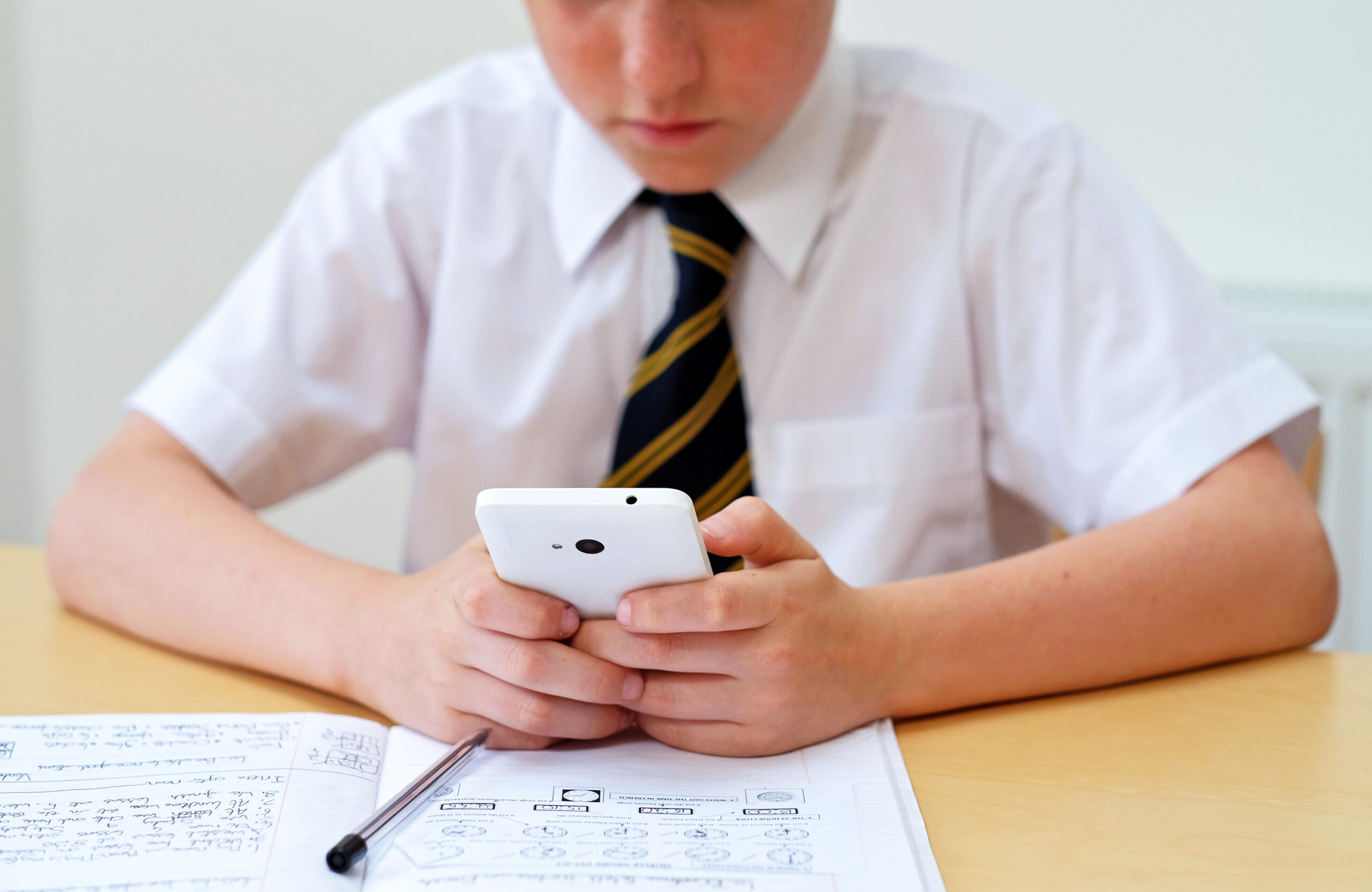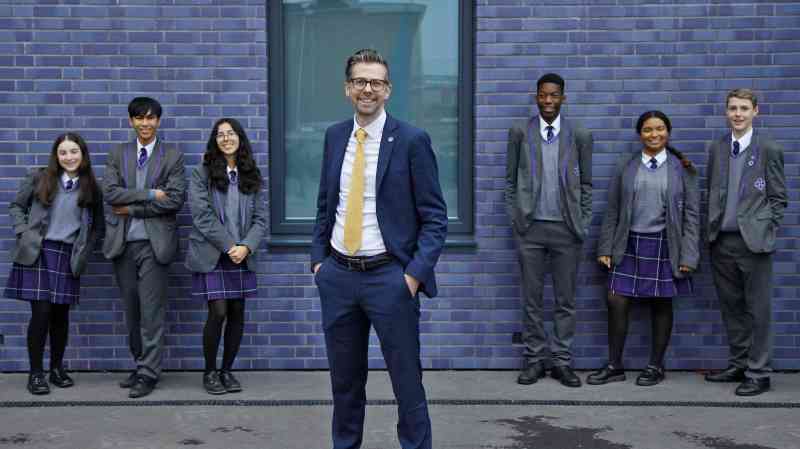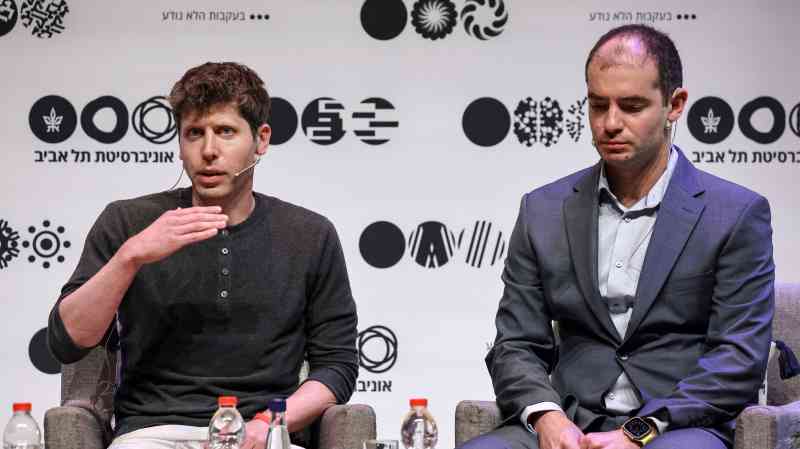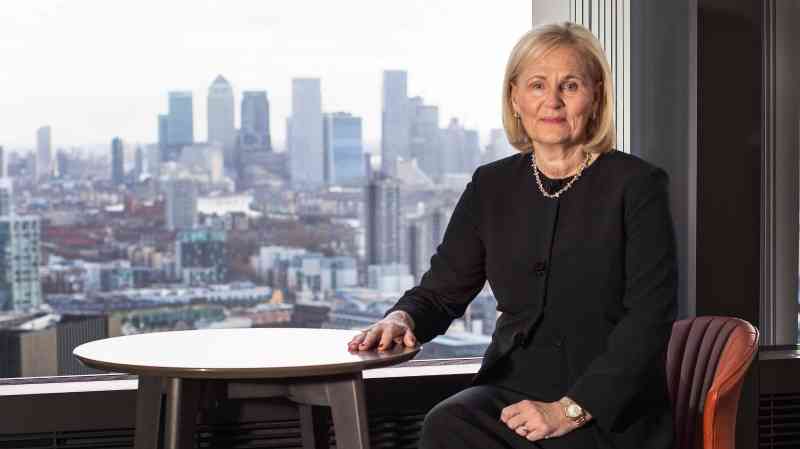The school offering a 12-hour day to break phone addiction
A head teacher is to extend the school day from 7am to 7pm this week in an effort to break his pupils’ addiction to smartphones.
Andrew O’Neill of All Saints Catholic College, a secondary school in Notting Hill, west London, which is rated as “outstanding”, is introducing the 12-hour day from Tuesday, offering art, drama, dodgeball, basketball and cookery classes after lessons. A hot dinner will be served.
He hopes it will help to reverse a “100 per cent addiction” among children to their smartphones, which he says is creating an anxious and apathetic generation. Some are practising or at risk of online crime.
• Parents are mad to give 11-year-olds smartphones, says Martha Lane Fox
O’Neill, 42, a former head teacher of the year, is worried about children gaming through the night with those in different time zones, cyberbullying, blackmail and sexting, but also about their growing inability to make eye contact, hold conversations or make friends in real life.
Phones have been banned at the school, which has 900 pupils aged 11 to 16, since 2016, but can be kept in a school bag or locker. If a phone is taken out of a bag, it is confiscated and locked in a safe for five days. Many parents complain about such confiscations.
O’Neill has three children and said his oldest, a girl of 12, has a “brick” phone. She might be allowed a smartphone so that her whereabouts can be tracked, but will not be allowed to download social media apps.

“At this school, we are trying to break the cycle of kids using phones causing so many problems. We are trying to give children activities in the evening, the kind of play-based childhood I enjoyed growing up in the village of Barton, near Darlington, instead of going home to their bedrooms and their phones,” he said.
“We have a long-term issue we need to solve. If we don’t, we will have a generational problem with workplaces and society. Some children are so apathetic. They don’t care about anything. They are buried in their phones. We want to help them and say this is an alternative.”
The actress Sophie Winkleman, who campaigns against children being given smartphones, said heavy usage of phones should be “curtailed both in the classroom and at home”, because children are then “not getting daylight, fresh air or talking to people”.
She said: “Devices are isolating and harmful when overused, yet they’re impossible to use in moderation as they’re ‘designed to be addictive’, as Steve Jobs [the Apple founder] said.”
O’Neill was horrified to discover that pupils in the past had used their smartphones to blackmail “random strangers”, and one child had “catfished” a schoolmate. Catfishing involves, for example, a boy pretending to be a girl online to get another boy to do something that could be used to humiliate him.
The head teacher said that he has seen “some of the most shocking things I have ever seen” when phones were confiscated by teachers and examined. “It was like unpeeling layers of an onion. It was like going into another world,” he said.
• A smartphone ban would let tech firms off the hook
Many other schools are also cracking down on phones. Pupils at John Wallis Church of England Academy, a secondary school in Ashford, Kent, have to put their phones in a magnetically sealed fabric pouch kept in their bag. Only at the end of the school day is the magnetic lock released.
The school says there has been a 40 per cent drop in after-school detentions and a 25 per cent decrease in truancy since the policy was introduced in January.
At Wilson’s, an all-boys grammar school in Wallington, south London, the headmaster, Nathan Cole, is also fed-up with “every serious disciplinary issue in school involving a mobile phone”.
His solution has been to ban the youngest boys from bringing in smartphones; they are told they are only permitted a brick phone. Cole, who has been headmaster since 2014, said: “Brick phones are cheap to buy [for as little as £50].”
O’Neill is calling for parents to be reported to social services, or even prosecuted, if they fail to keep children safe online. He lamented the fact that “if physical harm comes to a child at home, we involve social services and sometimes the police, but if psychological harm comes to a child because they are not being adequately monitored online by parents we do nothing about it”.
In a meeting at All Saints last week about the new extended day and the risks of mobile phones and social media, parents were told that teachers often found evidence on confiscated phones that children had been messaging each other at 1am or 2am.
Families were advised to read the book The Anxious Generation, by Jonathan Haidt, which argues that the rise in smartphone use by teenagers is causing a surge in mental illness, and invited to sign up to the extended school day, which is optional. Families will be charged a flat fee of £10 a week because parents are more likely to value something that they have to pay for. The effectiveness of the intervention will be tracked.
When Boris Johnson was prime minister, O’Neill went to Downing Street to discuss the possibility of a 7am to 7pm school day as a possible national policy to help reduce children’s mobile phone usage. It has also been discussed with the shadow education secretary, Bridget Phillipson, and will be debated next month by the Education Policy Institute think tank.
Parents groups want politicians to act. Three of the biggest parenting groups campaigning on the issue, Parentkind, Safe Screens and Smartphone Free Childhood, are urging political parties to include in their manifestos a ban on smartphone use for children under the age of 16.
In a joint statement, they said: “Parents are worried about the impact of smartphones and social media on their children. This is a societal issue — individual parents cannot tackle it alone.
“We need political leaders in a general election year to come together to commit to putting restrictions on smartphones and social media for under-16s in their manifestos, and give children their childhood back.”




Post Comment